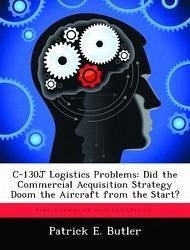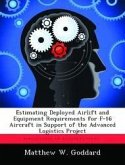The Air Force incorporated the C-130J into its inventory with a commercial acquisition strategy. This decision has resulted in numerous shortfalls that Air Force logisticians are fighting everyday to overcome. Despite the acquisition community's direction and requirements involving procurement of commercial items and Defense Acquisition University guidance on incorporating the customer's requirements into a new procurement through systems engineering, the C-130J was acquired as a commercial item. It appears very little forethought was given involving operational or logistical requirements which can be much more important in an armed forces operational environment as opposed to the requirements of a commercial aircraft. This paper focuses on the logistical shortfalls revealed in test and operational environments and theorizes some of these problems could have been avoided with more or better logistician involvement during the design, development, and testing process and a more intense focus on reliability, maintainability, and supportability. Active duty, Air National Guard, and Air Force Reserve personnel were essential in outlining some of the problems they face today. Ordinary research revealed several sources which described the operational shortfalls of the C-130J, but very little is publicly known about the numerous obstacles Air Force logisticians are working to overcome. The author argues that the Air Force acquisition community cannot expect logisticians to continually excel when logistical requirements are not given the utmost importance during aircraft procurement and must change the acquisition process to ensure logistics is not forgotten.
Bitte wählen Sie Ihr Anliegen aus.
Rechnungen
Retourenschein anfordern
Bestellstatus
Storno









